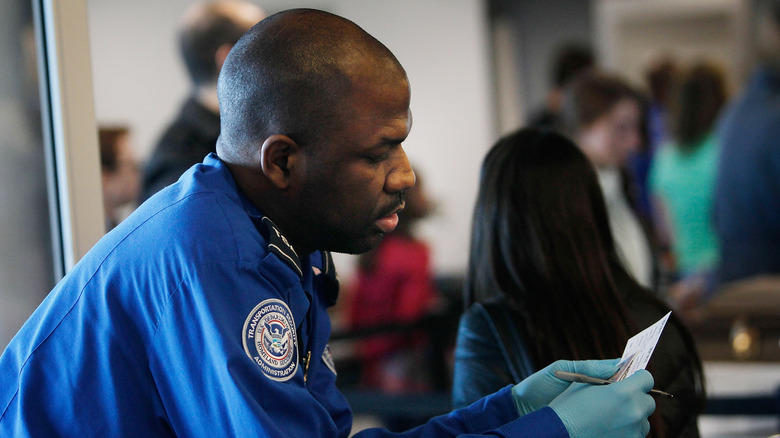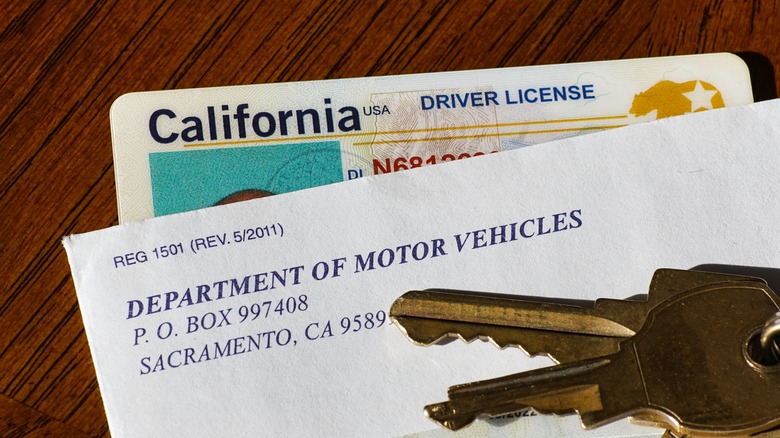Will TSA Accept An Expired Driver's License As A Valid Form Of ID?
Traveling is stressful, and the last thing you want to discover when you get to the airport is that your driver's license has expired. This unfortunate situation leads travelers who use their driver's license for travel within the U.S. to wonder: Will the Transportation Security Administration (TSA) accept my expired driver's license as a valid form of ID for my domestic flight? Understanding TSA's ID policies and preparing for all possible scenarios can help make your travel experience a little less stressful.
The TSA has stringent identification requirements to ensure the safety and security of air travel (there are also some strict photo requirements everyone must follow). Typically, travelers aged 18 and older are required to show a valid, government-issued photo ID to pass through security checkpoints. What is considered valid? According to the TSA, driver's licenses, passports, military IDs, DHS trusted traveler cards (like Global Entry, NEXUS, and others), and other state or federal IDs count as acceptable forms of identification.
During the COVID-19 pandemic, the TSA implemented temporary measures to accommodate travelers who may have experienced difficulties renewing their driver's licenses or other forms of identification due to the many closures and reduced services at government offices. As a result, the TSA allowed travelers to use their expired licenses or state-issued ID cards as acceptable identification in the interim at airport checkpoints for domestic flights. This leniency applied to IDs that expired on or after March 1, 2020, and extended up to one year after the expiration date.
Alternate IDs and Real ID
At the time of writing, the TSA has not officially stated whether the relaxed policies for expired IDs will continue indefinitely. Generally, travelers are always advised to carry a valid, unexpired form of identification. However, if you do find yourself with an expired driver's license or even without a valid ID at the airport (hey, it happens to the best of us; sometimes folks even lose their passport while traveling, and here's what to do about it), explain your situation to the TSA officer at the security checkpoint. Officers are trained to handle various situations and may accept your expired ID after conducting additional identity verification. Ideally, you should have some other alternative forms of identification to support the verification process.
Despite multiple delays by the Department of Homeland Security (DHS) over the last few years, Real ID is something you will need to fly starting May 7, 2025. From this date onward, travelers who plan to use their driver's license to travel in America must ensure that it's Real ID compliant. Otherwise, they will not be permitted to pass through the TSA security checkpoint. Perhaps you've heard whispers about this new ID; the Real ID Act was enacted in 2005 to establish minimum security standards for state-issued driver's licenses and identification cards for the purposes of travel (specifically, barding commercial aircraft). If your current ID is not Real ID-compliant, don't procrastinate! Get one before the deadline to avoid any potential future travel disruptions.

